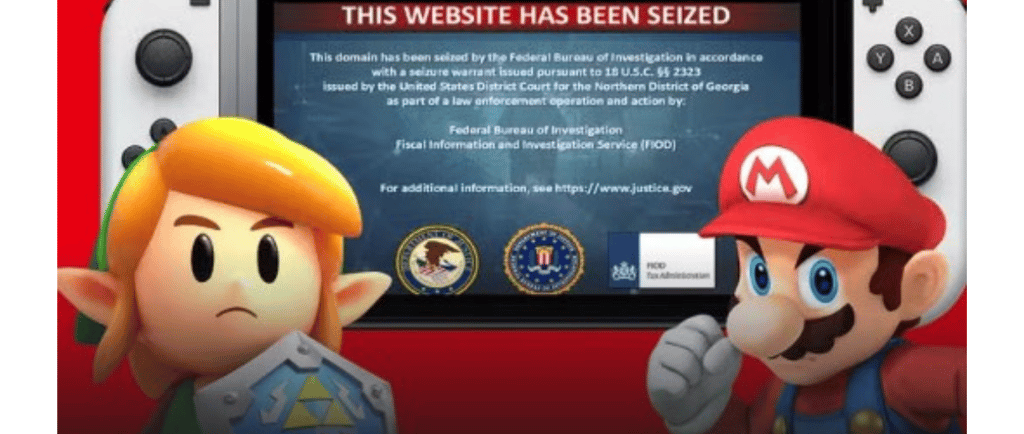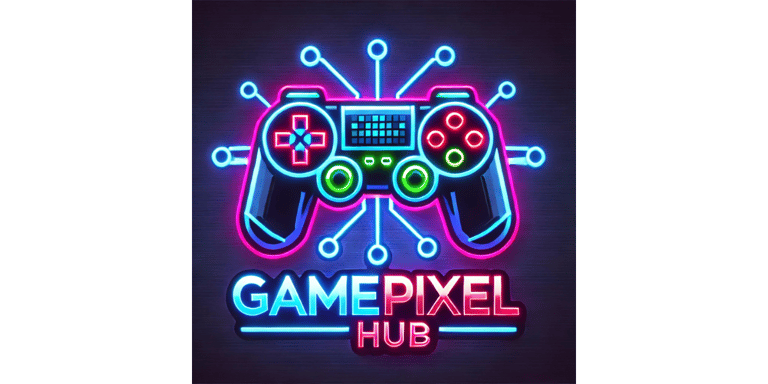Why Nintendo Is Banning Switch 2 Users for Legal Game Backups—and U.S. Players Are Furious”
Nintendo’s Switch piracy sweeps hit NSW2U and Switch 2 owners. Even legal backups via flash carts can permanently ban your console—U.S. gamers, beware!
7/11/20253 min read


🛡️ Nintendo’s War on Switch Piracy & the Switch 2 Ban: What Every U.S. Gamer Needs to Know
In 2025, Nintendo launched a major crackdown that’s shaking its loyal fanbase—especially in the U.S. The company has successfully taken down major piracy hubs, and their brand-new console, the Switch 2, is automatically banning users who attempt to play backups, even if those games are owned legally. Here's the full story and what it means for gamers.
🕵️ The NSW2U Takedown: Piracy Loses a Major Ally
Nintendo’s legendary crackdown on piracy landed a blow on NSW2U—a notorious site offering links to Switch games like Super Mario Odyssey and Animal Crossing: New Horizons. The Entertainment Software Alliance (ESA) and Nintendo jointly pushed for legal action:
In the UK, a High Court injunction gave ISPs orders (e.g., BT, Virgin, Sky) to block NSW2U and its mirror sites .
This site didn’t just house ROMs—it was a hub flooding pages with illegal download links, actively advising users to use VPNs and shifting domains to stay ahead of takedowns .
The ESA noted NSW2U hosted over 5,500 piracy posts in 2021, serving hundreds of thousands of users—and ignored repeated takedown notices .
The takeaway? Nintendo is not messing around. They’re targeting piracy at the source—and winning battles through court orders and ISP-level bans. If you're in the U.S., be aware: even if your downloads are from outside domains, Nintendo’s reach is expanding.
⚠️ Switch 2: The First Console That Bans Legal Backups
The race to protect games reached a new level with Nintendo's Switch 2 hardware. The console now comes with anti-piracy tech that detects MIG flash cartridges—these let users play backups of legally owned games on the new hardware. The result?
Users have reported immediate online bans when attempting to play backups, even if they owned the game .
Bans typically show as error code 2124‑4508, cutting off eShop access, online multiplayer, and cloud saves—even if the console still works offline .
Not just pirates: a Reddit user with the username “Twink Link” received a console ban after family members used the device, suggesting false positives are possible .
This aggressive ban policy reflects Nintendo's updated user agreement allowing them to render both console and account “permanently unusable” for unauthorized hardware/software use .
📜 Why Nintendo Is Changing the Rules: The Legal and Technical Motives
Nintendo has a long history of protecting its IP:
Since the NES era, they've battled bootleg cartridges and cracked down on fan remakes and emulator sites .
The cornstone approach includes DMCA takedowns, lawsuits (including a $10M case against a modchip maker), and site blockades .
The Switch 2’s hardware protections (encrypted USB-C communication, region-locked Japanese editions) highlight a proactive stance against unauthorized use .
But critics argue Nintendo's zero-tolerance approach—especially around personal backups—crosses a line:
Modern consumer rights in some countries allow home console owners to back up games they purchased.
The ban-as-brick policy may violate consumer protection in regions like Brazil .
Expensive consoles bought second-hand could come pre-banned, undisclosed to buyers .
Gamers wonder: is Nintendo punishing piracy, or penalizing legitimate use?
🌍 What This Means for U.S. Gamers
1. If you use backups or game preservation tools, you now risk more than playing offline—your console could lose all online functionality permanently.
2. Avoid flash carts like MIG or similar devices—they’re detectable and banned immediately.
3. Be cautious buying used Switch 2 systems—some could already be banned and unsellable.
4. Stay updated on user agreement changes—Nintendo plans to expand monitoring and anti-piracy tech across regions .💡 Common Questions Explained
**Is Nintendo "bricking" consoles entirely?**
No—the console functions offline. But it loses eShop, updates, and online multiplayer permanently .
**Can you unban a console?**
Rarely. In accidental cases (like the username error), Nintendo may assist. But for hardware modifications—very unlikely .
**What about older Switch backups?**
Switch 1 had more lenient piracy enforcement. Switch 2 is explicitly hardened against such activity .
**Could consumer rights groups respond?**
Yes—in Brazil, authorities have already launched legal challenges. Expect more scrutiny worldwide .
✍️ Final Thoughts: The Future of Game Ownership
Nintendo’s anti-piracy actions reflect a clash between IP protection and consumer freedoms. On one hand, Nintendo is defending its creative products; on the other, they’re restricting legitimate ownership practices.
U.S. gamers who back up games, use flash carts, or buy used hardware must pay attention. These moves signal a new era where console ownership carries risks—even for those following the rules.
With its popularity at stake, Nintendo may need to strike a balance: secure its platform from pirates, but respect legitimate users. Until then, know the stakes: your $450 investment and cloud library depend on staying within Nintendo’s strict new boundaries.
Explore the latest news and guides for gamers.
© 2025. All rights reserved.
